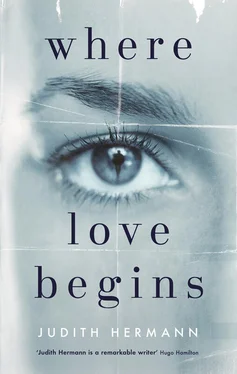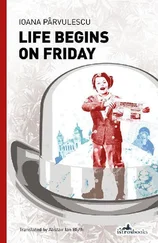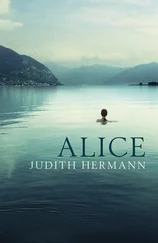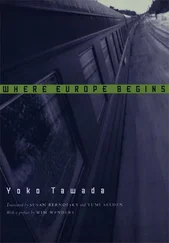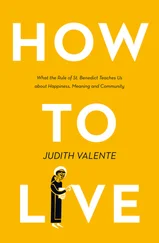I have a child, Stella says. I’m married. She says it as if it would change something.
The policeman goes to the toilet, and Stella waits until she can no longer hear his footsteps in the corridor; then she leans forward and turns the computer screen so she can look at it.
The woman making the complaint is visibly affected by the incidents.
Visibly affected.
This sentence is a gift. Stella sees it, accepts it, and turns the screen back to its original position, puts her hands in her lap and waits.
*
What came of it, Jason says on the phone.
We’ll have to wait and see, Stella says. They’re going to go to his place and tell him that from this moment on it will be a punishable offence if he approaches me in any way. They call it a de-escalation visit. They told me that according to previous experience the situation will get worse following the deescalation visit.
Good grief, Jason says. What kind of people are they sending over there.
Policemen specialised in dealing with hooligans, Stella says. In a certain way it feels wonderful to be able to say it like that.
Well then, I’ll set off, Jason says after a while. I’ll get going. I’ll drive home first and then I’ll drive out to the country to see you. Take care of yourself, Stella.
Till soon, Stella says off-handedly. OK then, see you soon. Take care!
*
I’m glad that you wanted to say goodbye to me, Esther says pleasantly. That’s gone completely out of style, saying farewell like that; people think it’s not at all necessary to say goodbye any more. Good-bye. She draws the word out scornfully. We two have to think of another farewell word, for we’ll never see each other again. Not in this life at least. What shall we say — Adieu? Well, it’s not time yet anyway. I’ve made myself beautiful for you, did you notice?
Esther is wearing a sweater with silver and gold threads over her pyjamas; she picked this sweater out herself and put it on, then fiercely insisted on making it to the living room by herself. She’s painted her cheeks red and combed her hair in all directions, draped a necklace of ivory elephants around her neck; she looks like a feverish clown.
Yes, Stella says. I noticed. You look smashing; thank you.
Esther laughs, as if she knew better. Open the left cupboard door, please. Take out two glasses, not those tiny round ones, the big cut-glass ones are the right ones. You can choose what you prefer, blackcurrant or cherry; I always liked blackcurrant best. You’ll have to reach down, the bottles are at the very bottom, at the back. Move them around a little, farther to the left. There, wonderful, I had no idea that there was so much left in the bottle.
Actually it isn’t permitted, Stella says.
Exactly, Esther says. Actually it isn’t permitted.
Stella fills both glasses.
Right up to the very top, Esther says; never hesitate! All of life is an abyss, and the less afraid you are and the longer you look down into it, the more you’ll enjoy it. You’ll come to realise that one day; I consider you somewhat less dim-witted than all the others. Cheers.
The alcohol is sweet and strong; Stella feels it immediately in her legs and in her head, a spaced-out heaviness in the middle of the day at noon. Esther smacks her lips. She takes the bottle from Stella and pours the glasses full a second time. She says, You could eat an apple with it. You look like someone who always eats apples. I never ate apples. Never.
She leans to one side and with an amazingly forceful gesture brushes the pile of old newspapers off the sofa and onto the floor. I have something for you, a little farewell gift; where is it; I hid it here, I’m quite sure. She pushes the boxes of sweets aside, lifts up the cushions. Here it is. Please take it with you; put it in your handbag, which, by the way, is much too big.
It’s a little box. A rectangular little box of brown wood, cherrywood perhaps, as small as a coffin for a mouse.
Stella opens the cover and looks inside. The box is empty.
Of course it’s empty, Esther says triumphantly. Save something in it. The first thing that matters to you in your new life — put it in there, and check on it from time to time; perhaps it will change into something else. I wish you all the best, I really do; you may trust me on that. And you’ve got problems trusting people, or am I mistaken?
On Sunday morning the bells of the village church peal outside the window of the room in which Stella and Ava are sleeping. Ava is sleeping so deeply it’s as if she were recovering from something. For a long time Stella lies on her side looking at her. Ava’s dreamy face has an expression from which she has difficulty disengaging. Then she gets up. There’s a fire glowing in the stove in the kitchen; on the table stands a silver pot of coffee; Paloma is in church. Stella goes out into the garden; it finally rained during the night, and the grass is still wet and cold. She stands behind the crooked garden fence looking down the country road. The road comes from the village, runs past the house, up the hill, and into the unknown on the other side of the hill. The windmills on the horizon begin haltingly to turn. The pine trees in the garden creak the same way as those back home. Smoke from the kitchen fire rises from the chimney, hovers above the roof, and then dissipates under the sky.
*
The previous evening Mister Pfister swept all his papers into a large pile behind his house, all the paper, the newspapers, pads, notebooks, reams of wrapping paper, direct mail, cardboard, absolutely all the photos, as well as the heavy red envelopes, even those. Someone called the police. The police came by and politely but firmly kept Mister Pfister from lighting the pile. During the night the words, the headlines, pictures, chains of thoughts and questions, the insoluble puzzles, all this got thoroughly soaked by the rain and finally and conclusively dissolved.
Mister Pfister was taken to police headquarters around ten o’clock that night. He was able to credibly assure the police at headquarters that he was simply at the end of his tether, nothing more. He was simply at the end of his tether; something like that can happen; it was all just too much for him; he needed to get some rest; it will pass. Everything’s all right. No need to worry. He can promise them that; he’ll come to grips with it.
He was also informed that Stella had registered a complaint.
Who?
Stella. A nurse by profession, thirty-seven years of age, married, the mother of a child.
Oh, yes.
He will receive a summons next week and was informed that from now on he would be committing an offence with each attempt to make contact with Stella. With each attempt. With every message, every request for forgiveness. With no matter what. Mister Pfister took note of it. Also signed a statement saying that he had taken note of it, had written his name in his feminine handwriting. He was sent home from police headquarters in the early morning hours. His path led past Stella’s house; there was no way around that; of course he rang the bell at her door, all the windows remained dark, the situation is the same as it was.
Now he is home and demolishing his house from the inside, from the inside to the outside at a deliberate pace. He destroys the furniture, taking it apart, hacking it up, throwing it all out, chair and table through the window over the sink and out into the garden, followed by cups, bottles and glasses, rubbish, blankets, shoes. Until nothing is left. Mister Pfister then wraps himself up in the last remaining blanket and lies down on the floor. The wind blows into the house through the smashed windows.
*
Ava sleeps till almost midday; then she calls Stella. Stella sits down on the edge of the bed. Ava says, Good morning. Stella feels that Ava is suddenly old enough to know that it can be nice to say good morning. Maybe she doesn’t know it yet, but she has an inkling already. Good Morning. She helps Ava get dressed and goes into the kitchen with her; Ava wants to take her hedgehog along; reaching for Stella’s hand she behaves as formally as at the beginning of a children’s birthday party.
Читать дальше
